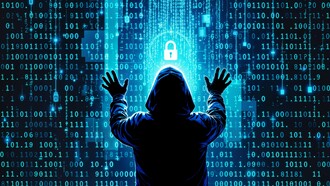In the dim glow of my laptop screen, I often find myself pondering a question that seems increasingly relevant in our digital age: at what point does influence become a threat to our individuality, a harbinger of a dystopia we're unwittingly crafting with every click and like? This isn't just idle musing; it's a concern rooted in the growing power of influencers in our lives.
The cult of influence: a digital seduction
Picture this: a world where your thoughts and beliefs are subtly shaped not by personal experiences or informed decisions but by the charismatic allure of individuals who exist primarily in the pixels of your screen.
These are the influencers – a term that once meant little but now carries the weight of significant social power. They are the new-age oracles, their social media platforms the temples where followers gather, often unquestioningly, to absorb their every word, image, and idea. This digital seduction is more than mere admiration; it's a form of silent indoctrination where the lines between personal choice and influenced decision become indistinct.
The influencers, with their crafted personas and lifestyles, present a reality that is both enviable and seemingly attainable, creating a powerful allure that draws in followers and subtly guides their preferences and choices.
The dystopian edge: when influence masks control
As I delve deeper into the phenomenon, a chilling realization dawns on me. The line between influence and manipulation is not just blurred; it's often invisible. Influencers, wielding the dual swords of charisma and reach, can morph into digital puppeteers, subtly pulling the strings of their audience's beliefs and behaviors. This manipulation, cloaked in the guise of influence, is where the seeds of a dystopian reality are sown. It's a world where critical thinking is dulled, where the echo of someone else's thoughts drowns out our own inner voice. The danger lies not in overt control but in the subtle shaping of perceptions and opinions, leading individuals down a path they believe to be of their own choosing, unaware of the external forces guiding their journey.
The lure of the echo chamber: a descent into intellectual submission
In this digital echo chamber, dissenting voices are lost in the cacophony of a well-curated feed. The danger is not just in what is said, but in what is left unsaid, in the questions not asked. We begin to live in a bubble, comfortable yet confining, where the illusion of knowledge replaces true understanding. It's a seductive descent into intellectual submission where the influencer's narrative becomes the only narrative.
This echo chamber effect reinforces existing beliefs and biases, creating a feedback loop that further entrenches the influencer's hold over their audience. It's a world where diversity of thought is overshadowed by the homogeneity of popular opinion, leading to a stagnation of intellectual growth and critical inquiry.
The subtle creep of dystopia: a world unaware
What haunts me most is the insidious nature of this shift. Unlike the dramatic dystopias of literature, our real-world version creeps in unnoticed. It's a change that occurs in the background, in the quiet moments spent scrolling through feeds, and in the gradual acceptance of presented realities.
This dystopia doesn't announce itself; it whispers, slowly eroding our ability to discern, to question, and to think independently. It's a silent transformation, where freedom of thought is replaced by a curated illusion of choice, and where the autonomy of the individual is compromised, often without their awareness.
The choice that lies before us
As I reflect on this, I realize that the power to change this trajectory lies within us. It's in our ability to recognize the difference between being influenced and being inspired. While the former seeks to mold, the latter aims to ignite. Inspiration encourages questioning, exploration, and the pursuit of personal truths. It's a beacon in the digital fog, guiding us towards intellectual autonomy.
This choice is not just about selecting whom to follow or what to like; it's about consciously deciding how we engage with the digital world and how we let it shape our perceptions and beliefs. It's a call to actively seek diverse perspectives, to challenge our own viewpoints, and to embrace the complexity of thought that lies beyond the simplicity of an influencer's narrative.
In a world where influencers hold sway over public opinion, we must guard our minds against passive consumption. We must actively seek inspiration, foster critical thinking, and embrace the diversity of thought. It's a battle for the very essence of our individuality, a fight against the silent onset of a digital dystopia. The question now is, will we heed the call?















